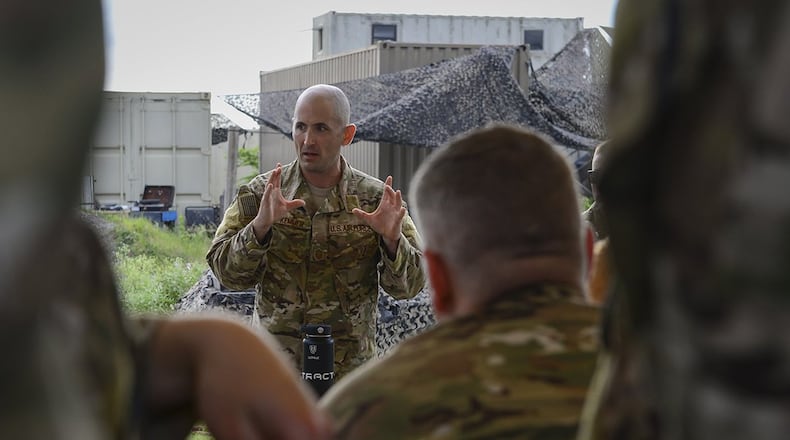“This has been near and dear to my heart for the last 15 months in planning,” said Col. Carlos Brown, 336th Training Group commander. “We are confident this new format of training will be able to get the right Airman, the right training and the right time and make the training process more efficient.”
The changes will involve shifting the SERE training paradigm from a one-size fits all approach to a flexible and more efficient concept that will adequately prepare forces for a high-end conflict, including the incorporation of distance learning into the curriculum.
“These changes will provide more tailored training for our Airmen while delivering them to their combat units more quickly,” said Maj. Gen. Craig Wills, 19th Air Force commander. “This is an exciting development that saves our most valuable resource – our Airmen’s time, while preparing our Air Force to better meet the demands of the 21st century fight.”
Initial SERE training for Airmen at high risk of isolation has been conducted through four courses over a 26-day period. Now, leaders at 336th TRG believe they have found a way to restructure the training requirements, which make it more efficient and ultimately saves time. COVID-19 expedited the need to test these changes, which are proving to be beneficial.
“Reducing the length of the SERE training helps accommodate personnel’s needs, especially through this pandemic,” Brown said. “We are professionalizing our Airmen through continued distance-learning education and getting after some long-term projects to modernize the SERE enterprise.”
The modernization effort, if approved by the Air Force, will provide tailored and targeted training based on an Airman’s AFSC and the level of risk they may face on the battlefield. This custom approach to training targets the right Airman, at the right time, in the right place for training.
“Currently the Air Force is working with every major command in the Air Force to better understand their SERE training needs, and we are confident these changes put into place because of COVID-19 will be in line to meet those requirements,” Brown said.
About the Author
